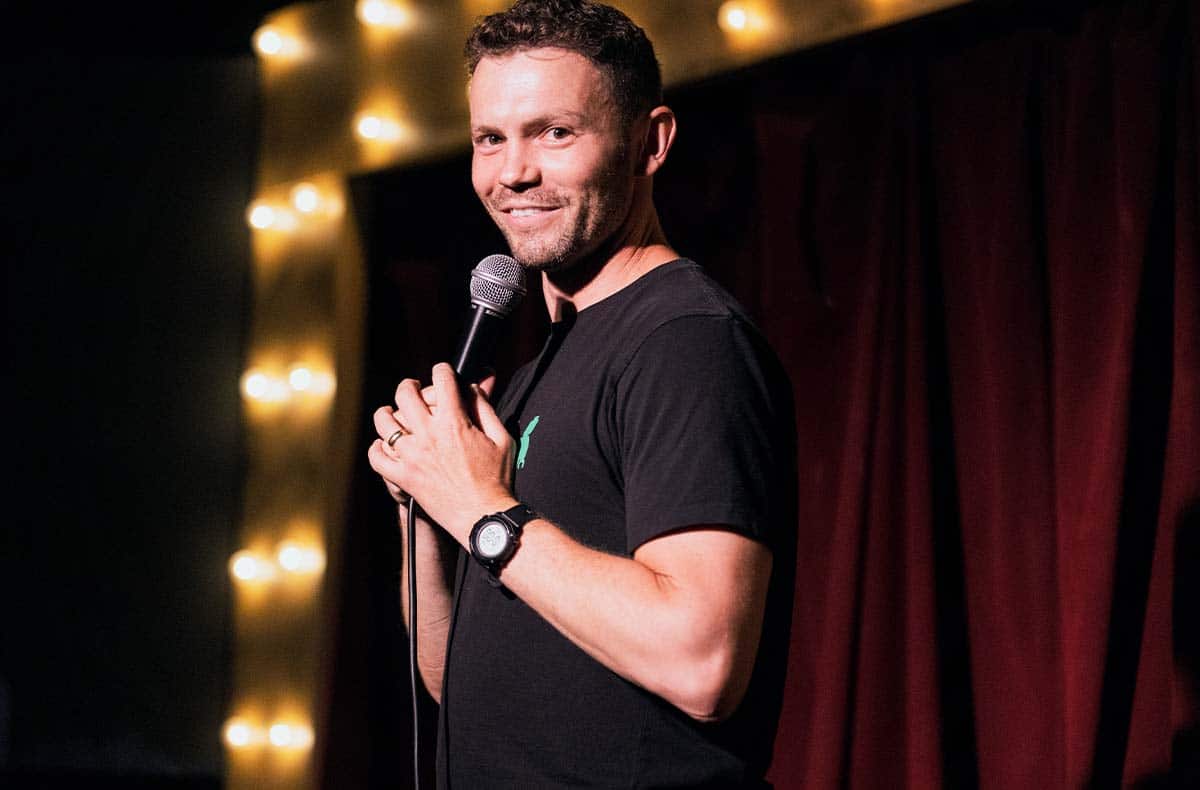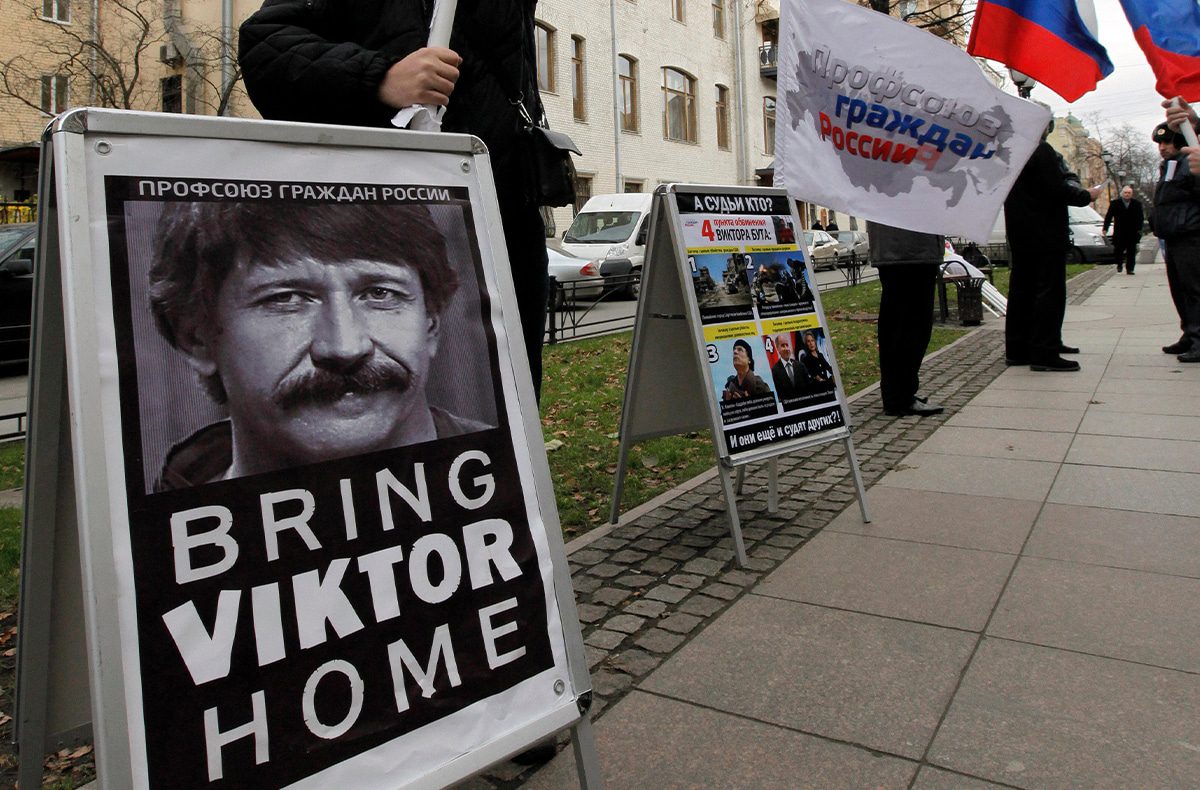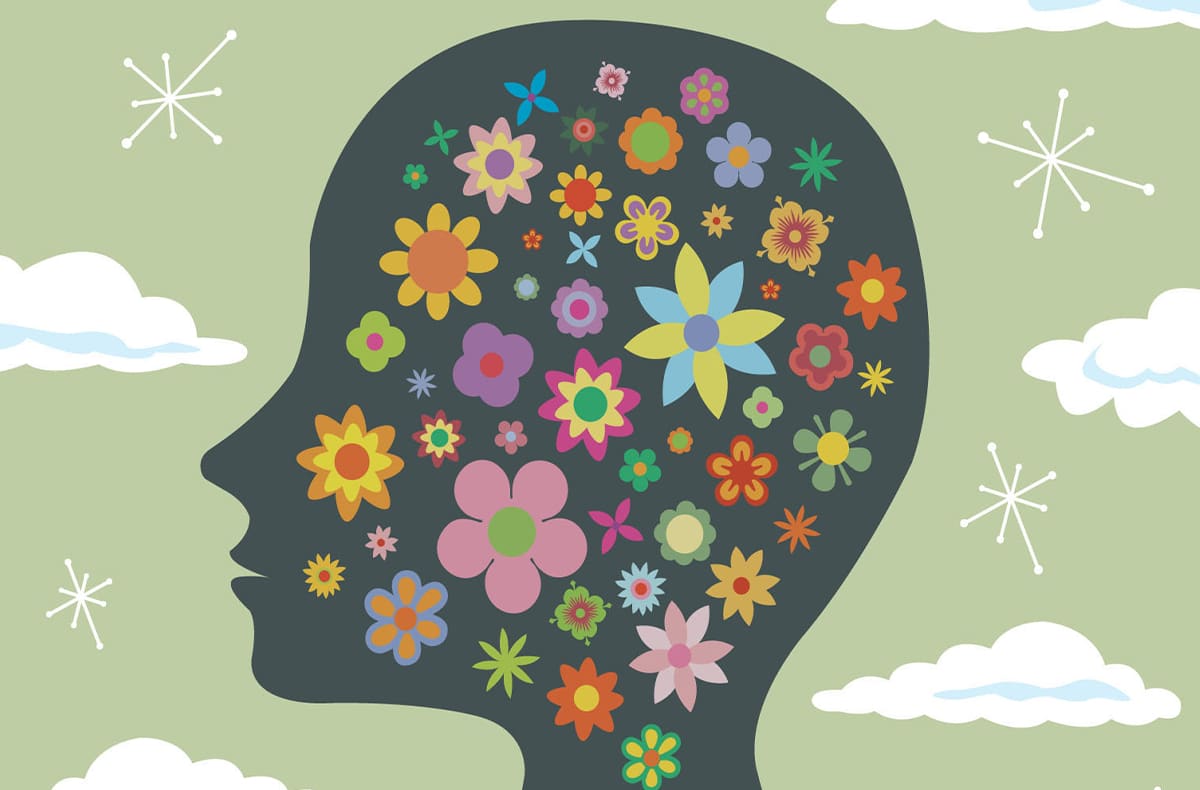
It would be an understatement to say that being Russian is a little uncomfortable right now. As a Russian-American journalist with no accent, I find myself hesitating when people ask the seemingly simple question, “Where are you from?” I could just say New Jersey, or I could answer “Russia,” and subject myself to the temperature drop and interrogation that follows to figure out whether or not I am a Good Person (pro tip: having a dog helps).
Being in the public eye obviously only makes it worse. I know a number of Russian-American musicians who have had their shows canceled and are afraid of wearing Russian outfits. A Swedish folk group had their performance canceled because they play on balalaikas—a traditional Russian folk instrument—which have now been compared to “swastikas.” But one public figure that I know who has actually managed to incorporate the current state of affairs into his routine is a Russian-American comedian named Ben Rosenfeld.
Rosenfeld, 37, was three when he left St. Petersburg and moved to New York City, where he currently lives. Like most people, his initial reaction to Ukraine’s invasion was “sadness,” especially since part of the reason his family left was to escape a hostile regime. But then he quickly started doing what he does best.
“I’m not a politician,” he told me. “All I know is how to make jokes about things, and writing jokes is also how I deal with things.”
Rosenfeld realized he had one of two options: not mention being Russian at all (as many of his other Russian-American comedian friends have chosen to do), or incorporate it into his sketch. He chose the latter, opening his next set with, “So, I’m Russian. I was initially playing at the comedy club next door when I decided to invade this one.”
It got a good laugh, so he continued, building it into an entire five-minute sketch centered around being Russian during this whole mess. He’s also Jewish, so, of course, his heritage made it into the mix:
“I’m Russian and Jewish, so I still have asthma…but it’s very aggressive.”
And his daughter turned out to be a great source of material:
“I have a three-year-old daughter. I taught her to speak Russian. So, now, I no longer tell her, ‘You’re grounded.’ Now I say, ‘You’re sanctioned.’ She goes, ‘Daddy, what’s sanctioned mean? And I go, ‘That means you can only play with your Chinese friends.’”
One of the things that I like about that joke, apart from the fact that it’s funny, is that I feel I can relate to it, as I personally believe that the sanctions leveled at Russian people, who did not choose this war, are unfair. It’s a sentiment he brilliantly addresses in another joke, one which gets a more mixed reaction:
“My friend recently said, ‘Ben, being born in Russia makes you complicit in this war.’ I said, ‘I’ve lived in America since I was a little kid. I’m only complicit in Iraq.’ Sometimes they laugh, sometimes they don’t, in which case he says, “Not as fun when it’s coming back at you, huh?”
In general, one of the nice things about Rosenfeld’s skit is that it doesn’t take sides so much as poke fun at the tragic absurdity of the entire situation, including the lowkey Russophobia:
“Recently, my friend comes over, hears my daughter ask me something in Russian, then my friend turns to me and says, ‘Does she want juice or the surrender of Kiev?’ I’m like, ‘Don’t be ridiculous…She wants Poland.”
His jokes can satisfy both those who are pro-Russian and pro-Ukrainian. Or, of course, it can also just “piss both of them off.”
“I’m consciously attempting to write the Russia-Ukraine jokes the way I write my American political jokes, where it makes fun of both,” he said. “No side of anything ever is 100 percent correct or 100 percent wrong…People tell me ‘That’s Russian propaganda.’ And it is. But if you can only see that there’s one side of propaganda, that just means the other side’s propaganda is so good you don’t even see it.”
I know a lot of people who wouldn’t agree with Rosenfeld’s stance. Personally, I do, and I also think it’s brave. As someone who has similarly always refused to take sides in my writing, I know how isolating it can be when you refuse to fully join either camp. But I’m also glad he’s doing his comedy routine this way, because I want peace, and it pleases me to know that someone that’s pro-Russian and someone that’s pro-Ukrainian can be sitting in a comedy club right now, laughing at his jokes. Because laughter—like music and food and love—is the great human unifier.


